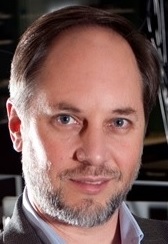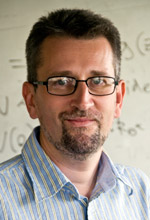Keynote Speakers
"An Introduction to Quantum Control"
 Professor Howard Wiseman
Griffith University
Professor Howard Wiseman
Griffith University
|
Abstract The control of quantum systems has become of much interest because of the potential of quantum computers and quantum communication to revolutionise information processing. In this talk I will explain the basics of quantum information and concentrate on one of the simplest applications for quantum control: initialising and/or reading-out a register of qubits (quantum bits) as quickly as possible. In some scenarios, where the controller includes a measurement device, many of the concepts of classical stochastic optimal control theory apply. In others, where even the “controller” is a fully quantum system, there is no classical analogue. |
Professor Wiseman is a theoretical physicist best known for his work on quantum measurement and control, especially feedback control and adaptive measurement. He also researches in quantum information, open quantum systems, quantum foundations, and Arthurian studies. He did his BSc Hons (1991) and PhD (1992-4) with Professor Gerard Milburn FAA and a postdoc (1994-6) with Professor Dan Walls FRS. He has published over 200 journal papers, 13 of them with more than 100 citations. He was awarded the Bragg Medal of the Australian Institute of Physics for his PhD thesis, the Pawsey Medal (for research in physics) of the AAS in 2003, and the Malcolm Macintosh Medal (for research in the physical sciences) of the Federal Science Ministry in 2003. He was elected as a FAA in 2008, and a Fellow of the American Physical Society in 2012. He has been Director of the Centre for Quantum Dynamics at Griffith University since 2007.
"Analysis and design of networked control systems"
 Professor Dragan Nesic
The University of Melbourne
Professor Dragan Nesic
The University of Melbourne
|
Abstract Networked control systems (NCS) are increasingly used in transportation, manufacturing, process industries, power systems, infrastructure, and so on. Their unique feature is that a digital communication network (wired or wireless) is used to transmit signals between the plant and the controller. Advantages of this technology are the reduced cost of the system, easier installation and maintenance, reduced weight and volume, and so on. Unfortunately, due to the presence of the network in the system, the analysis and design of NCS is much harder than for their classical counterparts. This is due to the fact that the network imposes communication constraints and undesirable effects, such as data dropouts, time delays, quantization, varying transmission times, signal scheduling, and so on. A typical approach in the research literature has been to identify a single network induced issue and develop the required theory for it. An overview some of our results that pursue this approach will be given by concentrating on time varying sampling and signal scheduling via protocols. Then, it will be highlighted that the same approach can be modified to deal with time delays and quantization. These results allowed us to develop techniques that concentrate on a particular issue (e.g. data scheduling) rather than a specific physical network and, hence, they often need to be adapted to specific networks. I will present some of our recent work that involves higher fidelity modelling of Flexray network and the corresponding design framework. |
Dragan’s bio is coming soon.